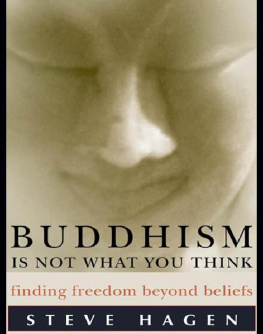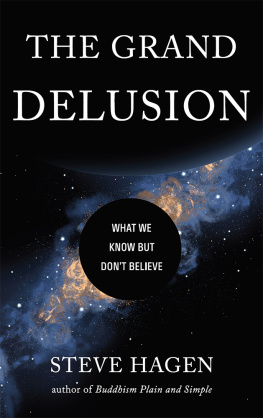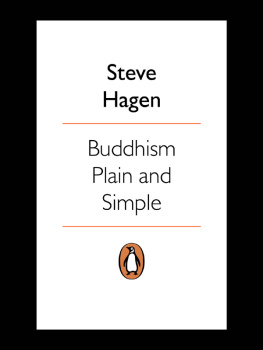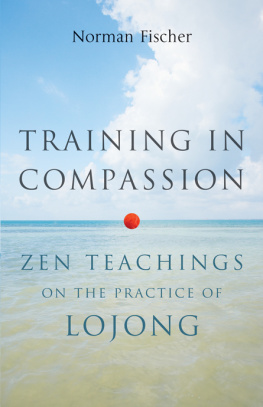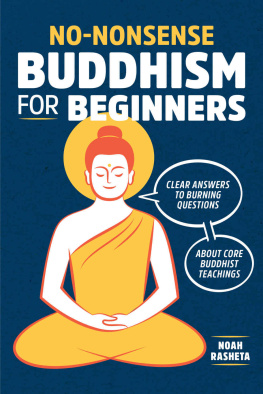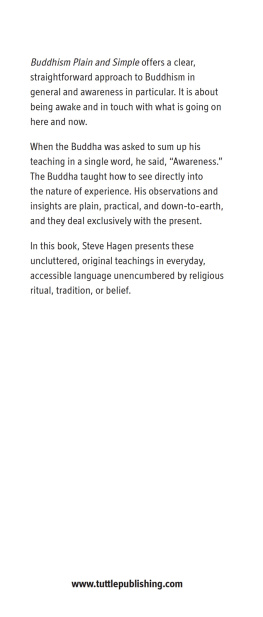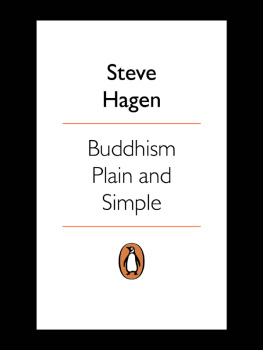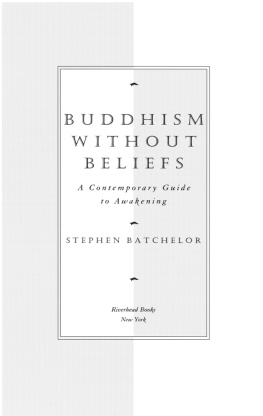Steve Hagen - Buddhism Is Not What You Think: Finding Freedom Beyond Beliefs
Here you can read online Steve Hagen - Buddhism Is Not What You Think: Finding Freedom Beyond Beliefs full text of the book (entire story) in english for free. Download pdf and epub, get meaning, cover and reviews about this ebook. year: 2009, publisher: HarperOne, genre: Religion. Description of the work, (preface) as well as reviews are available. Best literature library LitArk.com created for fans of good reading and offers a wide selection of genres:
Romance novel
Science fiction
Adventure
Detective
Science
History
Home and family
Prose
Art
Politics
Computer
Non-fiction
Religion
Business
Children
Humor
Choose a favorite category and find really read worthwhile books. Enjoy immersion in the world of imagination, feel the emotions of the characters or learn something new for yourself, make an fascinating discovery.
- Book:Buddhism Is Not What You Think: Finding Freedom Beyond Beliefs
- Author:
- Publisher:HarperOne
- Genre:
- Year:2009
- Rating:4 / 5
- Favourites:Add to favourites
- Your mark:
Buddhism Is Not What You Think: Finding Freedom Beyond Beliefs: summary, description and annotation
We offer to read an annotation, description, summary or preface (depends on what the author of the book "Buddhism Is Not What You Think: Finding Freedom Beyond Beliefs" wrote himself). If you haven't found the necessary information about the book — write in the comments, we will try to find it.
[Hagans] book will appeal to readers interested in what true Zen practice is supposed to be about beyond all the popular images and colorful stories.
Robert M. Pirsig, New York Times bestselling author of Zen and the Art of Motorcycle Maintenance
Buddhism is Not What You Think is a clear, direct, and engaging guide to the most essential elements of spiritual inquiry: attention, intention, honesty with oneself, compassion, and the desire to awaken. A renowned Zen teacher, Steve Hagen offers a valuable hands-on guidebook in which examples from everyday life are presented alongside stories from Buddhist teachers past and present to banish misconceptions and inspire the newcomer and the knowledgeable practitioner alike. Buddhism is Not What You Thinkit is both moreand less.
Steve Hagen: author's other books
Who wrote Buddhism Is Not What You Think: Finding Freedom Beyond Beliefs? Find out the surname, the name of the author of the book and a list of all author's works by series.

